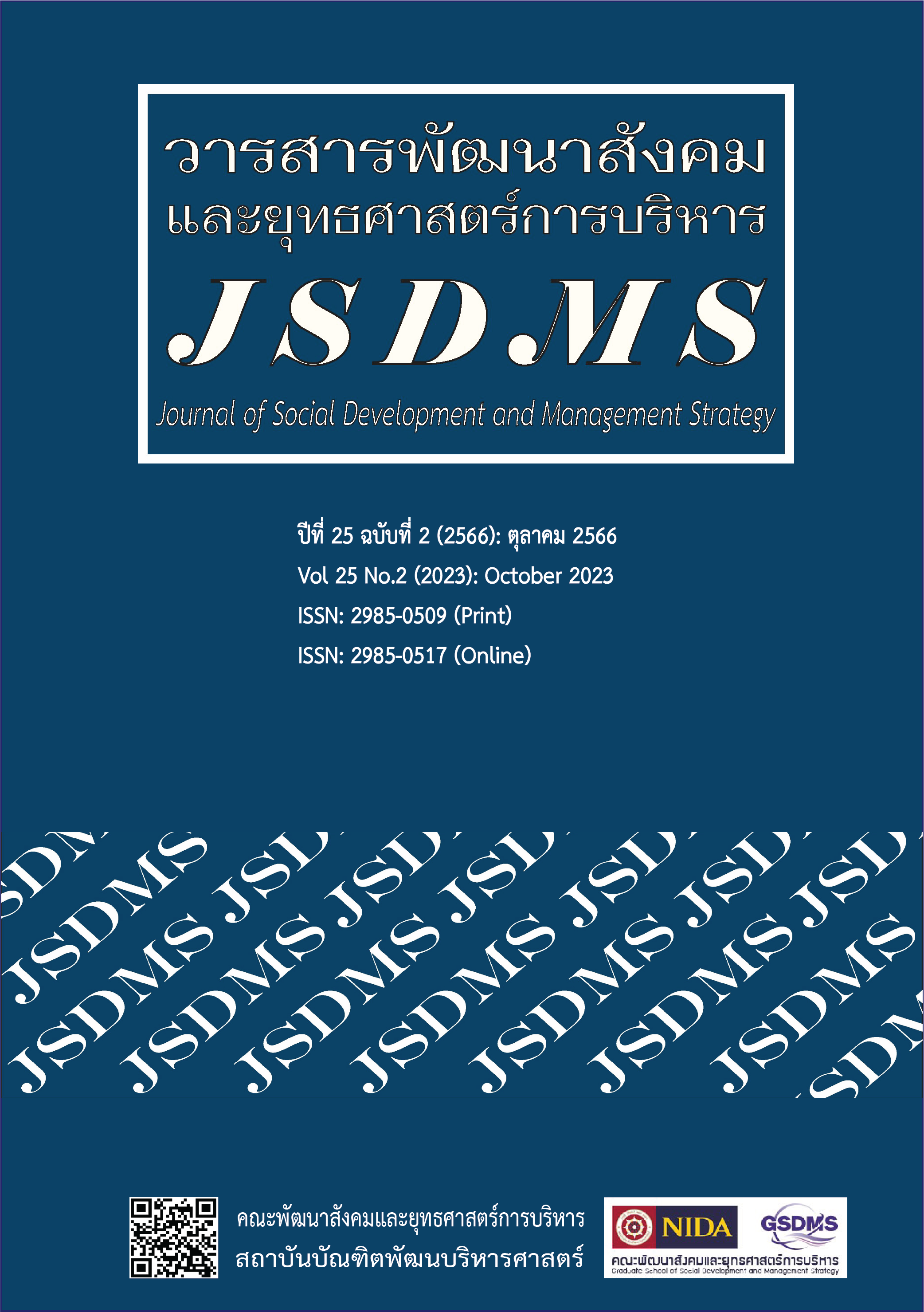Space and Community Development Work of the Future for an Opportunity and Equity
Main Article Content
Abstract
This academic paper aims to discuss the analysis of the area and future community development work. In the past to the present in the 21st, century, a community development work is in line with the influence of extreme capitalism, which has an inevitable negative impact on the community. Community development through extreme capitalism has an inevitable negative impact on communities. Community Development in this way makes communities vulnerable, leading to their inability to be self-sufficient because extreme capitalist development often operates under state-center policies. The future is recognized as an era of technological advancement in communication technology therefore, it is imperative to synthesize areas and community development work of the future in order to create a society of opportunity and equity.
This article explains the origins of the area and future community development work starting from the history explanation, concepts and theories of community development work in brief, empowering the community to align with the future of the community while with technological advances, and Sufficiency Economy Philosophy as a foundational philosophy for the future of community development in the age of technology.
The results of the analysis are proposed to community developers and all agencies involved in community development work to consider applying the principles of the Sufficiency Economy Philosophy to be consistent with the development context in the age of technology for designing activities in line with the future for community empowerment.
Article Details

This work is licensed under a Creative Commons Attribution-NonCommercial-NoDerivatives 4.0 International License.
References
Alinsky, S. D. (1989). Rules for radicals: A practical primer for realistic radical. New York: Vintage Books.
Chattip Natsupa. (2010). Modernization and community perspectives, Bangkok: Sangsan Publishing.
Chyatat Supachalasai. (2018). Techopocene. Chiangmai: Phatara Prepress.
Freire, P. (1986). Pedagogy of the oppressed. Middlesex: Penguin Books.
Giddens, A. (1985). Durkheim. London: Fontana Press.
Govinda, R. & Diwan, R. (2003). Introduction: Emerging Issues and practices. In R. Govinda & R. Diwan (Eds.), Community participation and empowerment in primary education (pp. 11-30). New Delhi: Sage publications.
Ife, J. (2015). Community development in an uncertain world: Vision, analysis and practice. Melbourne: Cambridge University Press.
Kengkij Kitirianglarp. (2017). Autonomia: Cognitive capitalism, nonmaterial labor, the politics of revolution. Bangkok: Illuminations Press.
Laverack, G. (2015). Health promotion practice: Power and empowerment. London: Sage Publications.
Putnam, R. D. (2002). Democracies in flux: The evolution of social capital in contemporary society. Oxford: Oxford University Press.
Sanders, I. T. (1958), Theories of Community Development. Rural sociology, 23, 1-12.
Somsak Samakkeetham. (2001). Neoliberal economic ideas social security and unsafe network. Rompruek Journal, 19(2).
Somsak Samakkeetham. (2011). The empowering of powerless, Bangkok: Ma Chalong Khun CSB.
Sanya Sanyawiwat. (2001). The theory and community development strategy. Bangkok: Chulalongkorn University Press.
Thawat Makarapong. (1994). The Thai rural development strategy. Bangkok: Thai Wattana Panit.
Thornton, P. H., Ocasio, W., & Lounsbury, M. (2013). The institutional logics perspective: A new approach to culture structure, and process. United Kingdom: Oxford University Press.


